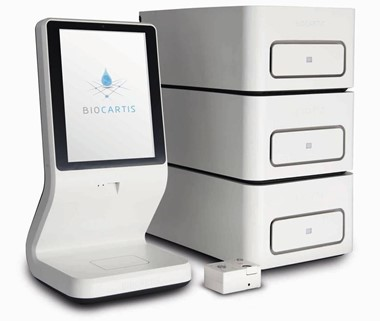Revolutionary diagnostic cancer test
Characterization of genetic alterations accumulating in solid tumors is a key research area of Diether Lambrechts’ lab at VIB-KU Leuven. Microsatellite instability, or MSI, is caused by the body’s inability to fix DNA errors, and contributes to cancer development in various organs, such as the colon, stomach and endometrium.
Tumors characterized by MSI have specific mechanisms driving cancer development and progression and should receive different therapies than other tumors. For instance, MSI tumors need alternative chemotherapy approaches compared to non-MSI tumors. Until now, MSI testing technologies have been complex and time-consuming to perform, which makes MSI often underdiagnosed in the clinical setting.

Diether Lambrechts and his team identified a set of 7 unique MSI markers. These novel biomarkers have a 98.7% concordance with available MSI tests. Furthermore, these markers enable testing based on Polymerase Chain Reaction analysis only, and, as such, can be fully automated. The novel biomarkers were exclusively licensed to Biocartis from VIB in 2013. This marked the start of a collaborative MSI program of VIB and Biocartis, with the aim to support the development of a fully automated MSI test on Biocartis’ IdyllaTM platform.

In 2017, VIB and Biocartis extended their research agreement to investigate the predictive nature of MSI markers for immunotherapy response. These efforts are based on the insights that advanced colorectal cancers patients with an MSI-high status respond particularly well to certain immunotherapies. As such, MSI may not only represent a prognostic marker, but may also predict a patient’s response to certain immunotherapies.

In July 2018, Biocartis launched its innovative and fully automated Idylla™ MSI Assay including the novel MSI biomarkers licensed from VIB. The CE-IVD marking was announced in 2019.
The Idylla™ MSI Assay offers an efficient and effective MSI testing method to support treatment decisions that can result in better outcomes for patients with colorectal cancer. The test provides information on the MSI status of a tumor within approximately 150 minutes from a single piece of human (FFPE) tumor tissue, without requiring a reference sample. In the future the test could open doors to detecting other tumor types that are associated with high MSI levels.
